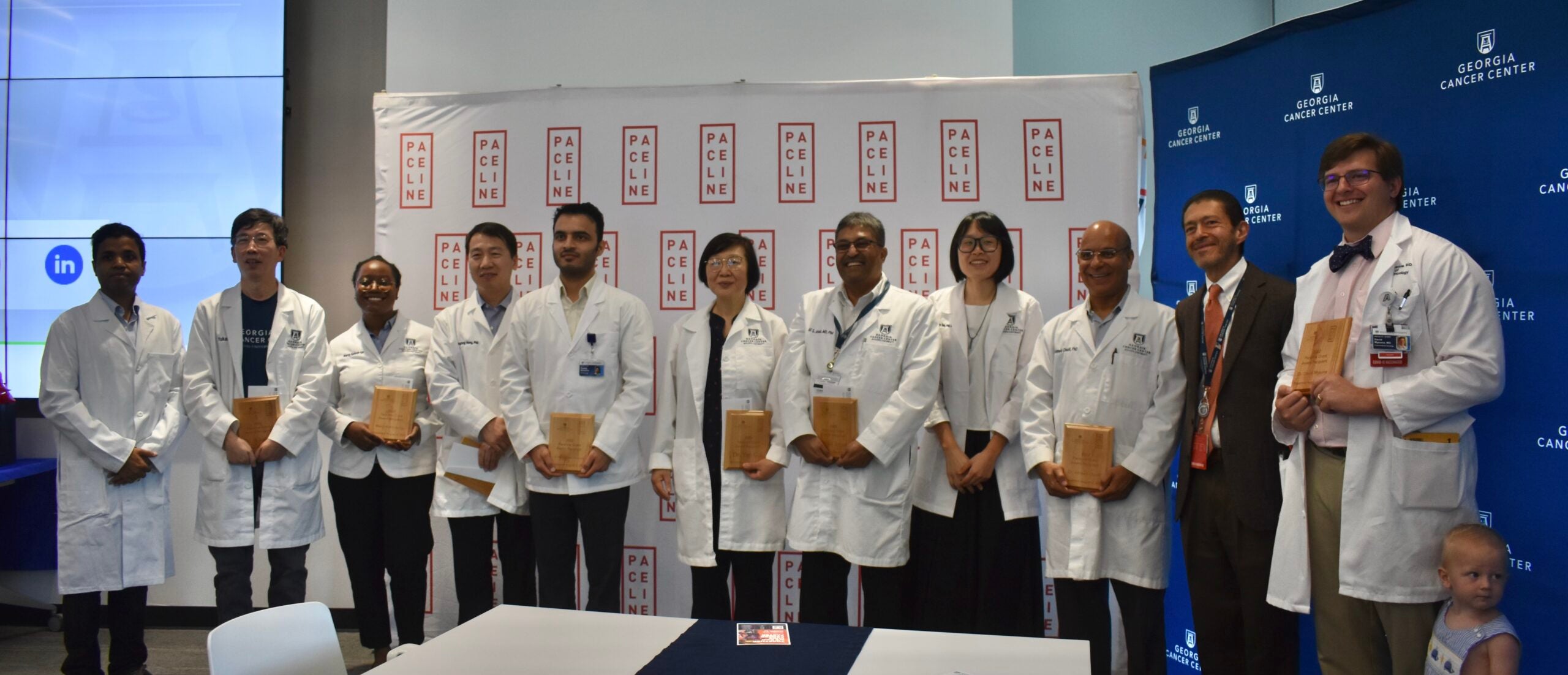Entering into their fourth year of fundraising groundbreaking experimentation and exploration through year-round efforts, Paceline awarded nine research grants on Wednesday, Aug. 2.
In partnership with the Georgia Cancer Center (GCC), the Paceline community is striving to fuel innovative projects that will improve cancer prevention, advance treatments and lead to finding the cure for all patients.
“The work our scientists do in their labs relies on the passion, determination and generosity of each team and individual who took part in PaceDay Weekend 2022,” said Dr. Jorge C. Cortes, director of the Georgia Cancer Center at Augusta University’s Medical College of Georgia. “Today’s research projects can serve as a beacon of hope … to unlock the mysteries of this disease.”
In 2022, thanks to the dedication of fundraisers, sponsors and supporters, Paceline was able to raise over $400,000 from riders’ success on PaceDay – a popular bike ride event that occurs in downtown Augusta.
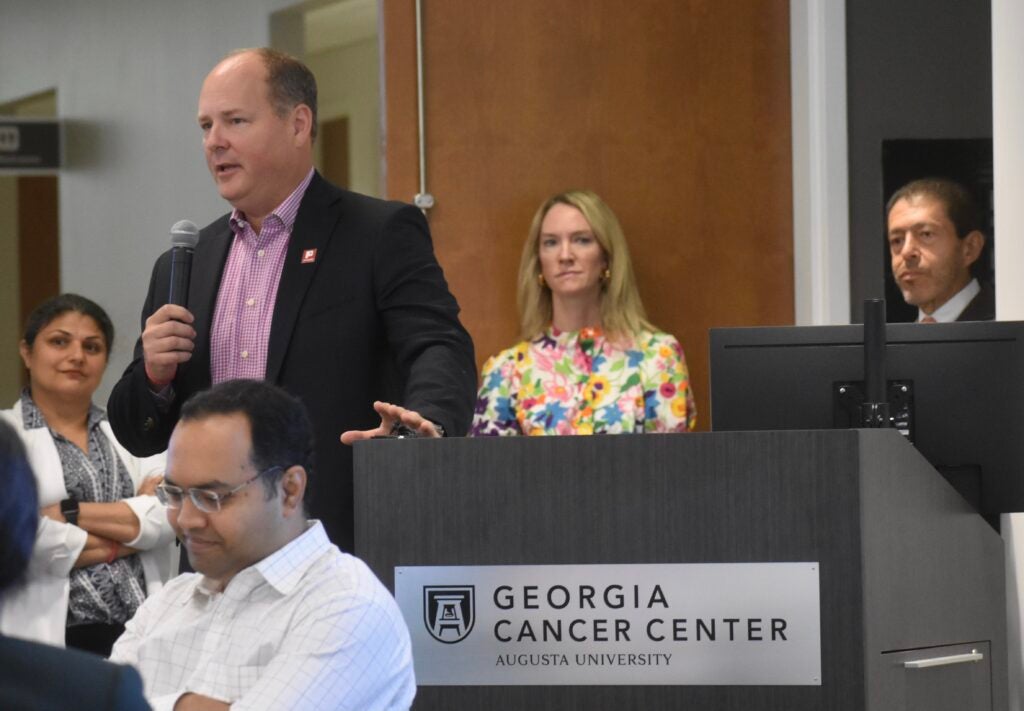
Dag Grantham, founder of Paceline, said the nonprofit has realized experimental that research has greatly benefitted from smaller $50,000 “seedling” grants, because it allows for scientists to formulate a more substantial hypothesis with results to back their findings – thus making their results developed enough to apply for larger national and federal grants that sum up to significant funds.
“Of course, our goal is to get larger and larger every year, because we want to one day give out those $2 million prizes someday,” he said. “Paceline is a movement … and the researchers are key – that’s why we’re here.”
After applicants participated in the organization’s PaceDay, a committee consisting of doctors, researchers and administrators reviewed 23 project proposals and selected nine candidates as Paceline’s 2023 winners.
“As a cancer researcher at the Georgia Cancer Center, I really feel excited about the huge potential of this Paceline campaign,” said winner Dr. Yukai He, a professor of Medicine at the Medical College of Georgia. “This is the reason to jumpstart the work, but it also is a collective effort to make a team. That is the spirit we should have in research.”
He and his partner Siva Panda’s project revolves around basic science research and is working to improve tumor infiltration and study the anti-tumor effects of armored CAR-Ts.
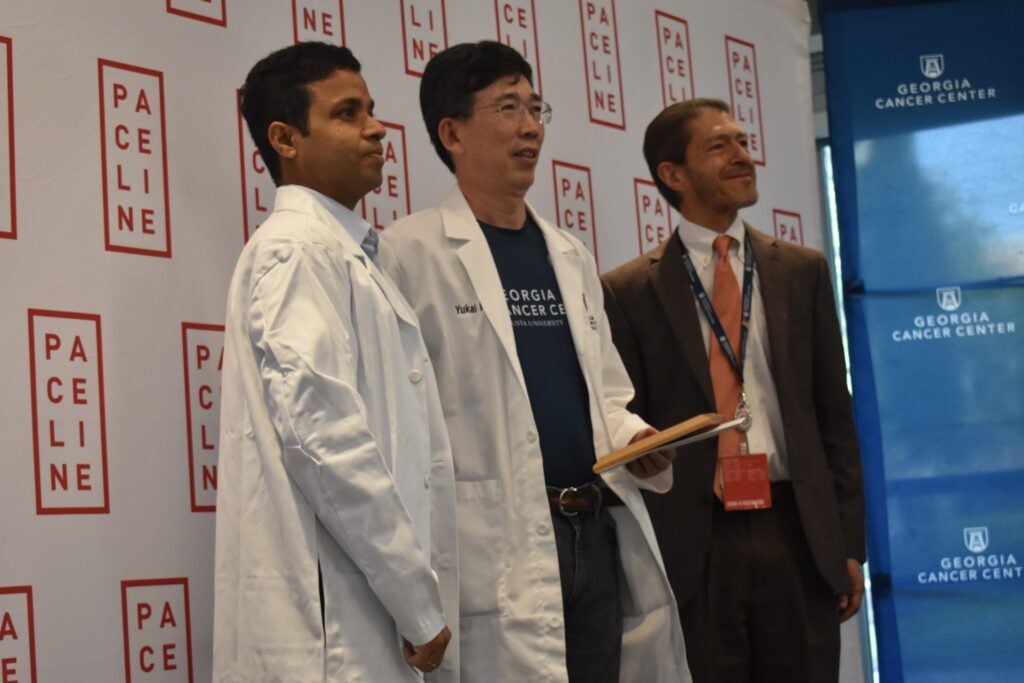
Dr. Ahmed Chadli, fellow 2023 awardee, said his project would revolve around unleashing anti-tumor immunity through the analysis of different proteins and how this affects cancer cells.
“Participating is one thing; it’s really a pleasure to be helping the cause in any way I can for cancer treatment and research, since this is really my life passion,” he said. “I dedicate my life to this, so getting this award makes me feel like my research is appreciated, and that people believe in it.”
Recipient of the 2023 Early-Career Investigator and Trainee-Mentored Research grant, Dr. Pankaj Ahluwalia, said it was an honor to be respected and chosen by highly experienced researchers and doctors.
With years of medical discoveries in attempting to find a cure for cancer, Ahluwalia said his project works similarly to a biological GPS that will personalize patients’ healthcare by identifying unique biological molecules, and assessing what would best fit the individual’s needs in fighting cancer.
“The Paceline grant would greatly aid in the discovery of novel gene signatures that can effectively guide treatment decisions and improve patient outcomes,” he said. “It establishes a huge amount of confidence in my ideas.”
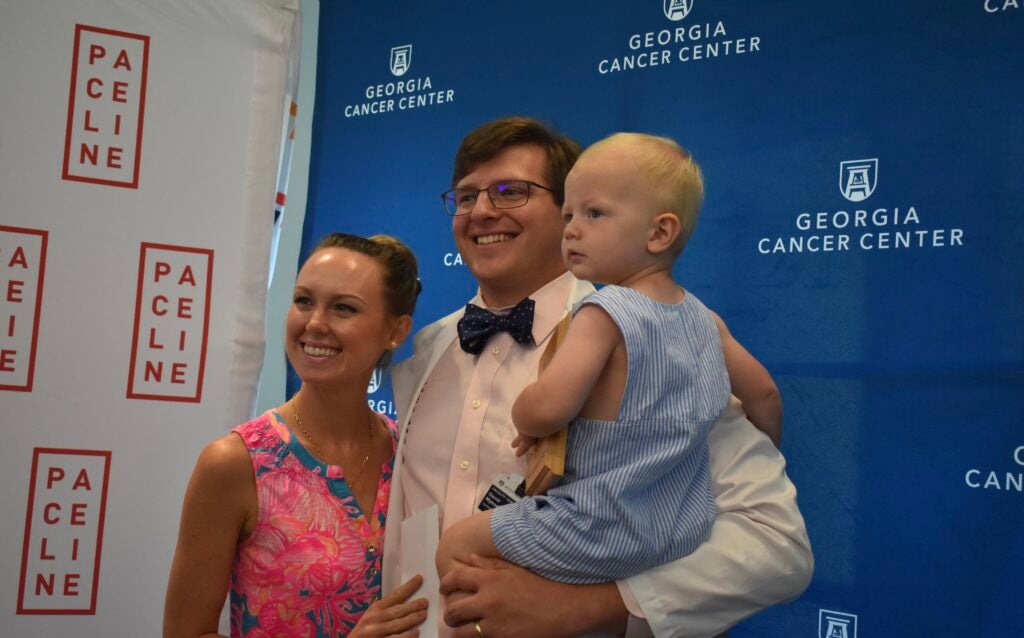
Other awardees included: Dr. Ali S. Arbab with a project centered on controlling metastatic growth of breast cancers and improving patient survival; Dr. Yan Cui’s research on the role of tumor microenvironment and hindering anti-tumor immunity; Dr. Meng-Han Tsai’s development of a comprehensive colorectal cancer database in Augusta-Richmond County; Dr. Bangxing Hong’s translational research in virotherapy; Dr. David Mysona’s interest in the utilization of artificial intelligence to predict the development of financial toxicity; and Mercy Kehinde-Ige’s investigation in the effects of Stat5a on metabolism and its role in adoptive cell therapy.
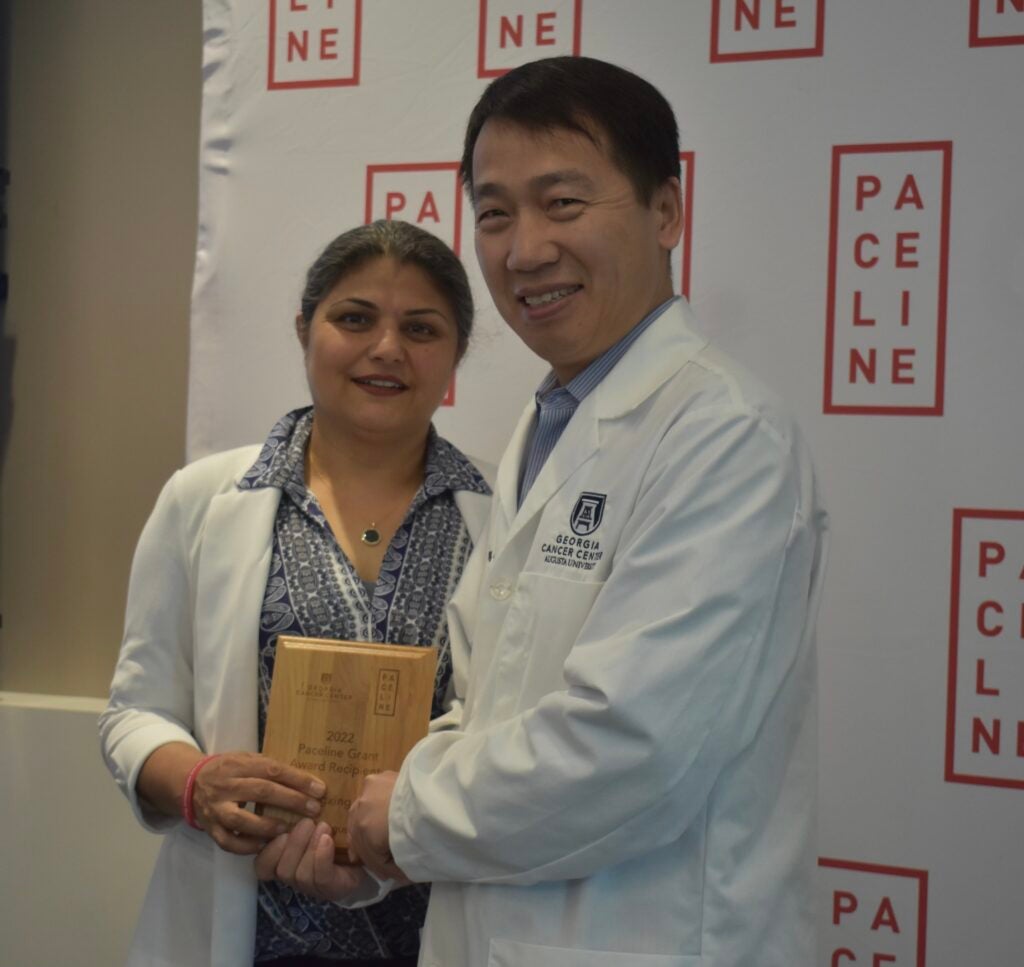
“Our mission is to reduce the burden of cancer in the state of Georgia and across the globe through outstanding care, innovation and education,” said Cortes.
Since the Georgia Cancer Center is choosing to pursue the development of unique research projects unlike anything else seen in the country, Cortes said the major community fundraising efforts that occur because of Paceline and Augusta’s commitment to fighting cancer has a widespread impact that is changing the lives of many every day.
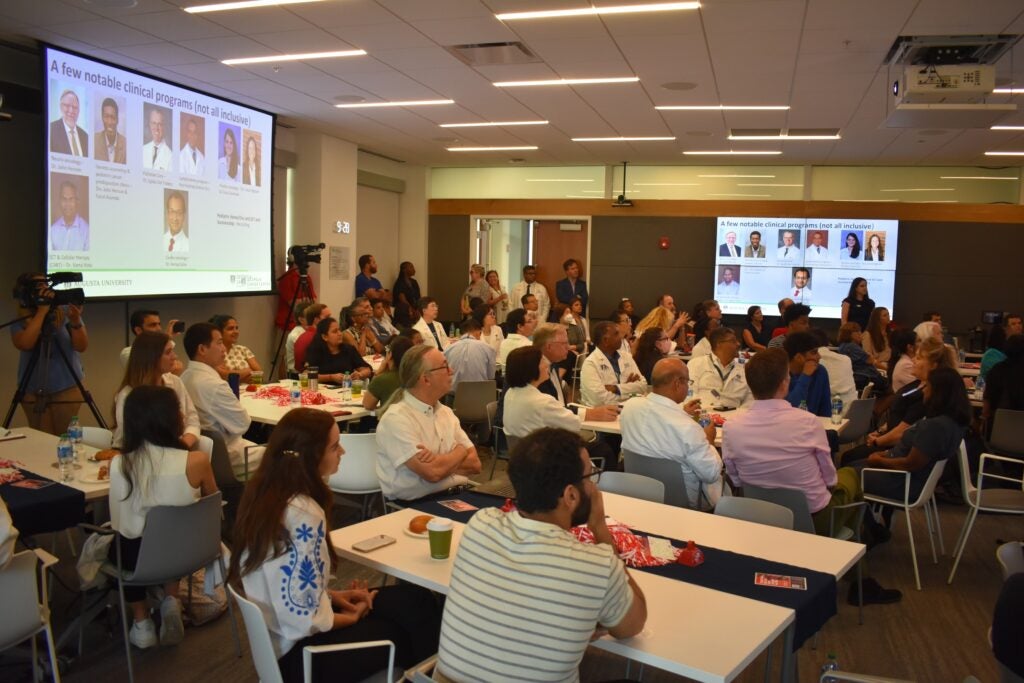
“Paceline maintains its 100% model whereby every single dollar donated is truly being invested as intended. The ongoing support Paceline receives from the Medical College of Georgia Foundation makes this promise possible,” said Paceline President Martyn Jones. We look forward to updating our community on the progress of these nine new cancer research projects.”
Paceline’s 2023 PaceDay will take place on Oct. 15, and will start and finish in the Augusta Common, located at 836 Reynolds St. In order to ensure time for adequate fundraising, participants who would like to join the cause are encouraged to register as soon as possible.
Registration for PaceDay 2023 is free at paceline.org.
“As a participant in Paceline, you’re going to help change the lives of thousands of people you will never meet, just because you decided to give up your time and energy to fundraise positivity, ” said Grantham. “The ocean is made up of many drops, and every single drop of research and positive outcomes is what’s going to make the difference.”

